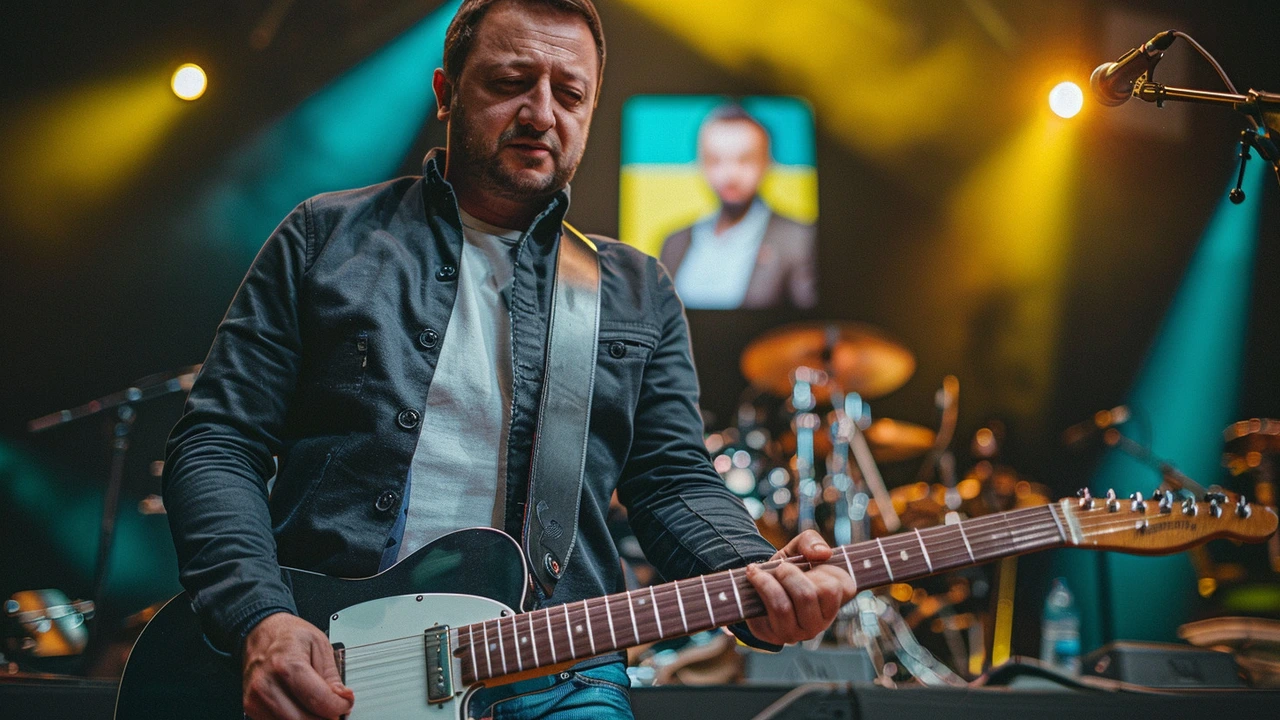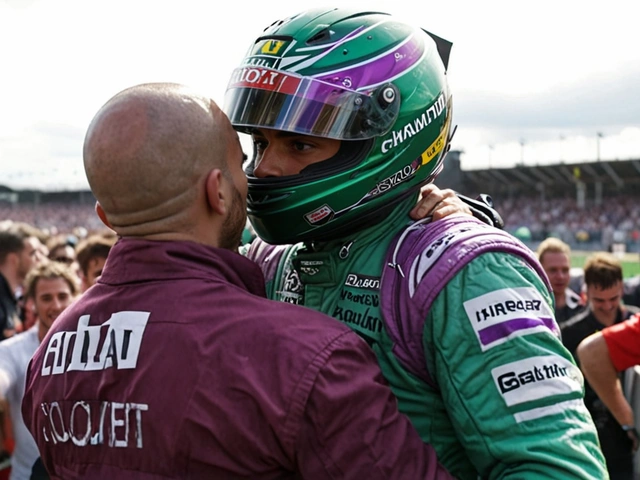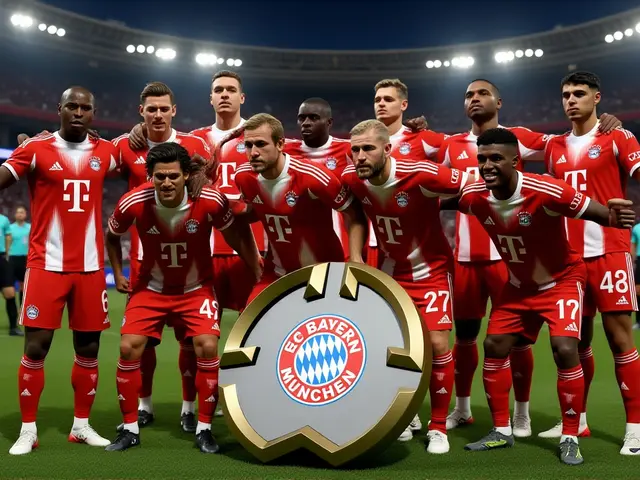Rod Stewart's Pro-Ukraine Statement Met with Boos at German Concert
Renowned British singer Sir Rod Stewart recently encountered a wave of disapproval from his fans during a concert in Leipzig, Germany. The incident unfolded when Stewart, known for his flamboyant performances and strong opinions, displayed an image of the Ukrainian flag alongside a picture of Ukrainian President Volodymyr Zelensky on stage. The 79-year-old artist, famous for hits like 'Maggie May' and 'Do Ya Think I'm Sexy?', took a bold stance against Russian President Vladimir Putin, punctuating his display with an emphatic declaration, 'F*** Putin!'. This outburst preceded his performance of the 1991 hit 'Rhythm Of My Heart', a song that evokes themes of peace and unity. However, rather than receiving applause, Stewart was met with an unexpected chorus of boos, shouts, and whistles from the audience of 12,000 concertgoers.
Stewart's Stance on Ukraine
Stewart's condemnation of Putin and his public support for Ukraine are hardly new. The singer has been vocal about his stance since the early days of the conflict between Russia and Ukraine, expressing his solidarity with the Ukrainian people both on social media and during his numerous public appearances. His outspoken advocacy extends beyond mere words; Stewart has also been actively involved in various humanitarian efforts to aid those affected by the war. From donating funds to participating in charitable events, he has consistently shown his commitment to the cause. Yet, despite his good intentions, his recent actions in Leipzig highlighted the complex and often polarized nature of international opinion regarding the conflict.
Negative Reaction in Leipzig
The response from the Leipzig crowd was stark and unequivocal. The audible boos and negative reactions serve as a reminder that public opinion in Germany, and perhaps more broadly in Europe, remains divided on the issue. While many support Ukraine's sovereignty and condemn Russia's aggression, others are wary of overt political statements, especially in contexts they deem inappropriate, such as a concert. This incident in Leipzig is not isolated but rather indicative of a broader sentiment shared by a portion of the population that prefers to keep entertainment and politics separate. The situation also underscores the complexities of public sentiment in Germany, a nation with deep historical ties to both Russia and Ukraine.
Contrasting Responses: Berlin vs. Leipzig
Interestingly, Stewart's bold pro-Ukraine display was met with a starkly different reaction the following night in Berlin. Performing in the German capital, Stewart received a warm and enthusiastic response, suggesting a more supportive audience in that city. This contrast between Leipzig and Berlin highlights the regional differences within Germany regarding views on the Ukraine conflict. While Berlin, as a cosmopolitan hub, may have a more liberal and internationally-aligned audience, Leipzig's negative reaction reflects the city's distinct political and cultural attitudes. These differing responses within the same country illustrate the nuanced and varied perspectives that exist around the Ukraine-Russia conflict.
Impact of the Global Summit in Switzerland
Stewart's controversial moment came on the heels of a significant global event. In Switzerland, representatives from over 90 countries, including key global powers, gathered for a summit to discuss a 'road map to peace' between Russia and Ukraine. The summit aimed to foster dialogue and find a solution to the ongoing conflict. A communique resulting from the summit was signed by nearly 80 nations, emphasizing the importance of upholding Ukraine's territorial integrity. However, notable absences in support, particularly from several developing nations, underscored the persistent challenges in achieving a unified global stance on the issue. The absence of Russian representatives, who were not invited to the conference, further highlighted the difficulties in establishing a comprehensive and inclusive dialogue.
The Broader Implications of Stewart's Stance
Rod Stewart's vocal support for Ukraine and condemnation of Putin jarringly juxtaposed the broader geopolitical efforts. While concerts are traditionally seen as entertainment and respite from political tensions, Stewart's actions highlight how cultural events can unavoidably intersect with global issues. His willingness to use his platform to voice his political views, even at the risk of alienating parts of his audience, aligns with a broader trend of artists and public figures becoming more outspoken on international matters. Stewart's decision underscores the role cultural influencers play in shaping public opinion and bringing attention to critical issues.
Conclusion
In conclusion, the mixed response to Rod Stewart's pro-Ukraine statement during his Leipzig concert encapsulates the varied and complex nature of global public opinion regarding the ongoing conflict between Russia and Ukraine. His experience speaks to the broader challenges of uniting international perspectives, even among allies. It also emphasizes the role of celebrity influence in public discourse, demonstrating how artists like Stewart intertwine their platforms with advocacy. As the situation in Ukraine continues to unfold, the reactions to such outspoken support will likely remain a barometer of prevailing sentiments and divisions within global audiences.






